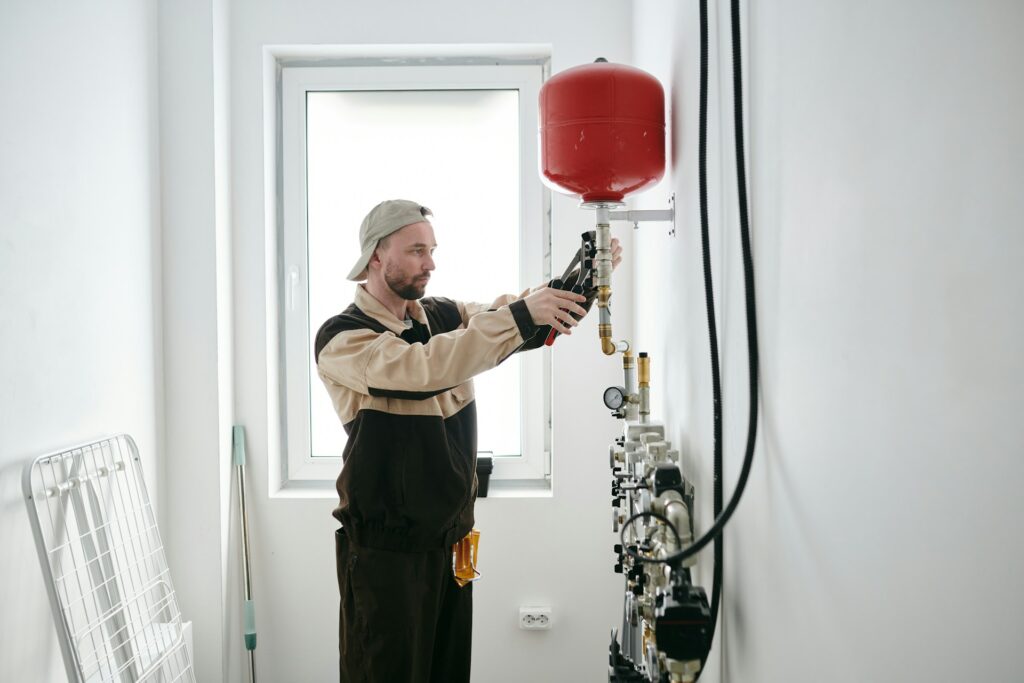Gas water heaters are essential for providing hot water in your home. They are relied upon daily for showers, washing dishes, and laundry. However, like any appliance, gas water heaters can experience problems. Understanding these issues and knowing how to address them can save you time and hassle.
Understanding Common Gas Water Heater Issues
Gas water heaters can face several common issues that affect their performance. Recognizing these problems can help diagnose and fix them quickly. Here are some typical issues homeowners encounter:
1. No Hot Water: This is one of the most obvious and frustrating problems. Causes might include a faulty thermocouple, a broken gas valve, or issues with the pilot light. If the pilot light goes out frequently, it may indicate a problem with the thermocouple.
2. Inadequate Hot Water: If the water isn’t as hot as it used to be, the thermostat might need adjustment. Sediment build-up in the tank can also reduce heating efficiency. Flushing the tank can help solve this issue.
3. Strange Noises: Popping or rumbling sounds can occur due to sediment build-up at the bottom of the tank. As the water heats, it can cause the sediment to move around, creating noise. Regular cleaning can prevent this.
4. Leaks: Water leaks can be due to several reasons, such as a faulty temperature and pressure relief valve, a corroded tank, or loose fittings. Addressing leaks promptly is crucial to prevent water damage and further complications.
5. Discolored Water: Rusty or discolored water can indicate corrosion inside the tank. This problem might necessitate tank replacement, especially if the corrosion is severe.
DIY Troubleshooting Steps
Certain gas water heater issues can be resolved with some basic troubleshooting steps. Here are some DIY methods to consider:
1. Check the Thermostat: Ensure the thermostat is set to an appropriate temperature. If it’s set too low, the water might not heat efficiently. Adjusting the thermostat can often resolve the issue of inadequate hot water.
2. Inspect the Pilot Light: If the pilot light is out, relight it by following the manufacturer’s instructions. For repeated outages, check the thermocouple and clean or replace it if necessary. The thermocouple is usually located near the pilot light.
3. Flush the Tank: Sediment build-up can cause various issues, including strange noises and reduced heating efficiency. Turn off the gas and power supply, attach a garden hose to the drain valve, and flush the tank to remove accumulated sediment.
4. Check for Leaks: Examine all fittings, valves, and the tank itself for any signs of leaks. Tighten any loose connections and replace faulty components like the temperature and pressure relief valve if needed.
5. Test the Thermocouple: Ensure the thermocouple is clean and properly positioned relative to the pilot light. This small component should generate enough voltage to keep the gas valve open. Clean any debris around the thermocouple.
6. Replace Anode Rod: The anode rod helps prevent corrosion inside the tank. If you notice discolored water, turn off the water supply and remove the rod for inspection. If it’s heavily corroded, replace it.
By following these steps, many common gas water heater issues can be resolved without needing professional intervention. If the problem persists, it might be time to call in our professionals for further assistance.
When to Call Our Professionals
Some issues with gas water heaters are too complex or risky for DIY fixes. Knowing when to call our professionals can save you time and prevent further damage.
1. Persistent Pilot Light Problems: If the pilot light goes out frequently, even after relighting, it could indicate a deeper issue with the gas system. Our technicians can safely diagnose and repair the problem.
2. Gas Smells: If you smell gas near your water heater, it can be dangerous. Turn off the gas supply immediately, ventilate the area, and contact our professionals for an urgent inspection. Gas leaks are serious and require professional handling.
3. Water Heater Age: If your gas water heater is over 10-15 years old and experiencing issues, it might be time for a replacement. Our professionals can assess whether a repair or replacement is more cost-effective.
4. Complex Leaks: While small leaks from valves or fittings can be addressed by homeowners, leaks from the tank or inaccessible areas should be handled by our technicians. We have the tools and expertise to fix these issues effectively.
5. Strange Noises: Persistent rumbling or banging sounds, even after flushing the tank, may indicate serious problems. Our professionals can inspect and repair internal issues that might be causing these noises.
6. Thermostat and Burner Issues: Problems with the thermostat, gas burner, or other internal components can be tricky. Our technicians can perform a detailed inspection and carry out the necessary repairs or replacements.
Calling our professionals at the right time can prevent minor issues from turning into major problems, ensuring your gas water heater runs efficiently and safely.
Preventative Maintenance Tips
Regular maintenance of your gas water heater can prolong its life and help avoid costly repairs. Follow these preventative maintenance tips to keep your unit in optimal condition:
1. Annual Inspection: Schedule an annual inspection with our professionals. They can check for any potential issues and perform routine maintenance tasks like cleaning the burner and checking the gas lines.
2. Flush the Tank: Sediment can build up at the bottom of the tank and reduce its efficiency. Flushing the tank at least once a year helps remove this build-up and improve performance. Attach a garden hose to the drain valve and let the water flow out until it runs clear.
3. Check the Anode Rod: The anode rod prevents rust inside the tank. Inspect it every few years and replace it if it’s heavily corroded. A functioning anode rod can significantly extend the life of your water heater.
4. Test the Temperature and Pressure Relief Valve: This valve is a critical safety feature. Lift the valve’s lever to ensure that it releases water. If it doesn’t, consider replacing it to prevent pressure build-up in the tank.
5. Set the Right Temperature: Keep the thermostat at the recommended temperature, usually around 120 degrees Fahrenheit. This prevents overheating and reduces the risk of scalding.
6. Inspect Venting System: Ensure that the venting system is clear of obstructions and operates correctly. Blocked vents can lead to dangerous gas leaks and inefficient heating.
By following these preventative maintenance tips, you can ensure your gas water heater operates reliably and safely. Regular upkeep helps catch small issues before they become significant problems.
Conclusion
Maintaining a gas water heater involves understanding common issues, performing DIY troubleshooting steps, and knowing when to call our professionals. Regular preventative maintenance is vital for the longevity and efficiency of your water heater. By paying attention to these aspects, you can ensure a steady supply of hot water and a safe home environment.
If you need expert assistance with your gas water heaters in Yukon, OK, contact Triple Play Home Services. Our professionals are ready to help with inspections, repairs, and maintenance to keep your water heater running smoothly. Reach out to us today for reliable service and peace of mind.









